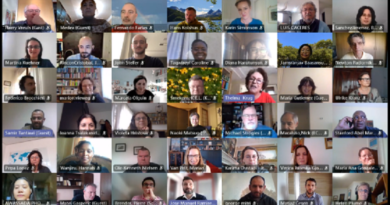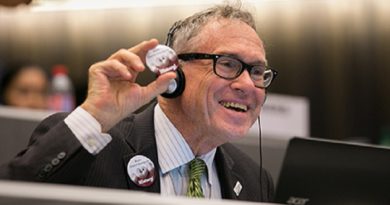GEF unveils impact programs to upscale landscape restoration
Taking a comprehensive, sustainable approach to restoring forests and landscapes can help address interlinked issues, strengthen food security for a rapidly growing population, and improve millions of livelihoods of those who are particularly dependent on agriculture.
The Global Environment Facility (GEF) has been working for over 25 years to help mitigate climate change, halt biodiversity loss and combat land degradation. The nexus between these three goals across globally important landscapes present a key opportunity to achieve them in a synergistic way through the generation of global environmental benefits across all these dimensions.
Taking a comprehensive, sustainable approach to restoring forests and landscapes can help address interlinked issues, strengthen food security for a rapidly growing population, and improve millions of livelihoods of those who are particularly dependent on agriculture.
In Africa, more than a third of the jobs are agriculture-related. However, the continent is particularly vulnerable to the impacts of climate change and deforestation. The restoration of forests and landscapes is an integral goal of the AFR100 – an initiative that brings to date 21 African nations together with the aim restore 100 million hectares of degraded landscapes across Africa by 2030.
The Global Landscapes Forum (GLF) regional conference “Landscape Restoration in Africa: Prospects and Opportunities”, taking place in Nairobi, Kenya on August 29-30, 2018, aims to foster political and community support to implement the AFR100 initiative by coordinating and increasing international, national and private sector support for forest and landscape restoration.
Transforming our food systems
How the world’s food system evolves and land is allocated for different uses will have major implications to whether our restoration goals are met or not. To keep the planet and people healthy, we need food systems designed to protect natural resources, absorb greenhouse gas emissions, provide nutritious and affordable food, and strengthen the resilience and prosperity of rural populations.
During its 7th operational phase (GEF-7), the GEF will develop key programs to help implement the landscape approach, building on the momentum brought about by international partnerships such as the GLF. The GEF-7 Food, Land Use and Restoration Impact Program seeks to transform food and land use systems and help countries reconcile competing social, economic, and environmental interests by moving away from unsustainable sectoral approaches. GEF support will help countries meet the growing demand for increased crop and livestock production, while eliminating the risk of further expansion of farmland into natural high-biodiversity habitats and forests, erosion of genetic diversity, overexploitation of land and water resources, overuse of chemical fertilizers and pesticides, and inefficient practices that lead to greenhouse gas emissions.
Comprehensive land use planning is a necessary foundation to foster transformational change. Many businesses are ready to invest in improving food and land use systems – both because it is the right thing to do and because it opens tremendous opportunities for growth. Achieving sustainable food systems globally could generate 80 million jobs and create an additional $2.3 trillion in productive growth by 2030
Focusing on three key biomes: the Congo Basin, the Amazon, and drylands
As a financial mechanism of the three Rio conventions, the GEF is a key supporter of developing countries’ efforts to sustainably manage their forests and help with their restoration. Since its inception the GEF has supported over 400 forest projects and programs with more than $2.7 billion in GEF grants. In GEF-7, the focus shifts from individual countries to three specific biomes: Amazon, Congo Basin, and some important drylands landscapes, where comprehensive sustainable forest management is both feasible and necessary to preserve these ecosystems and their services to humanity.




